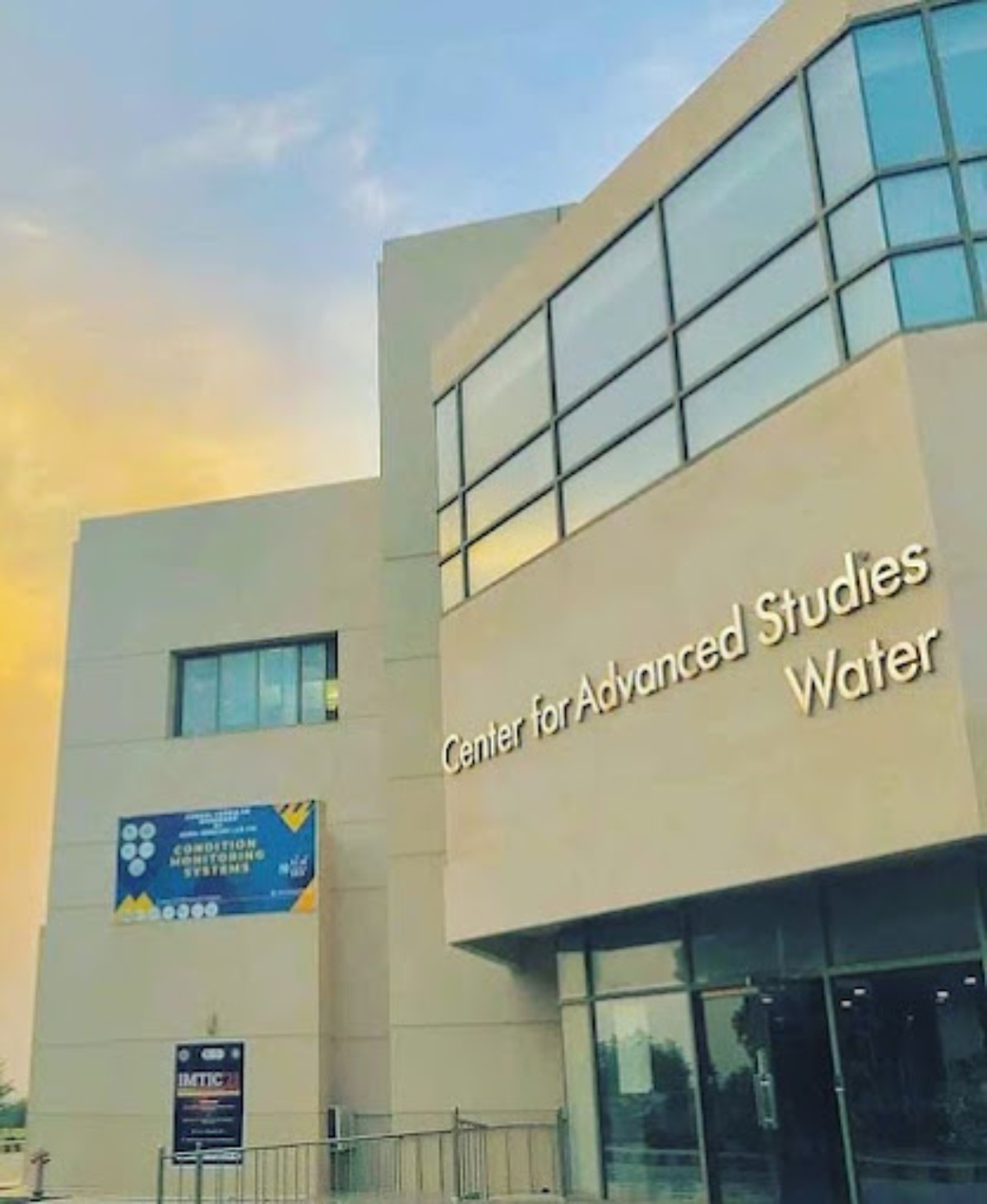
By Syed Wahaj Ahmed
JAMSHORO: Experts and industrialists have said that investing in environment is not a liability, but a way to create value and sustainability. Moreover, they have described an exorbitant cost of eco-innovation facets as a major hindrance to local industries in the country.
“The high cost of eco-innovation options is a significant barrier to industries. They perceive environmental investments as a liability rather than a step toward value addition. Insufficient collaboration between industries and research institutes is also a barrier to environmental sustainability which industries are facing. A few industries have adopted eco-innovations, primarily export-oriented. Besides, most small-scale industries need to be more environmentally-sustainable. Industries remained neutral toward environmental regulation in Pakistan as there is some lack of a conducive environment for effectively enforcing environmental regulations,” Prof Dr Zubair Ahmed said, head of the environmental engineering/science department at USPCAS-W, MUET and principal investigator of eco-innovation for the sustainable industrial growth of the major industrial sector in the SEZs under the CPEC.
He said this while speaking at the first virtual international seminar to disseminate outcomes of the Higher Education Commission (HEC) funded three-year project worth Rs25 million titled: “Eco-innovation for the sustainable industrial growth of the major industrial sector in the special economic zones (SEZs) under China-Pakistan Economic Corridor (CPEC)” on a successful completion of one year of the project (February 2022 to February 2023) . It was organized by US-Pakistan Center for Advanced Studies in Water (USPCAS-W), Mehran University of Engineering and Technology (MUET), Jamshoro, Pakistan the other day, attended by project stakeholders, industrial experts, and national and international researchers from Pakistan, Australia, China, and Malaysia.
The principal investigator said that over 800 industries of five sectors including textile, steel, food, chemical & pharmaceutical, and automobile & allied were surveyed to capture the status of existing eco-innovations in industries, and 113 industries responded. Among responded industries, 57 per cent were export-oriented, and 43 per cent were local manufacturers.
“Among three phases of the project, the first phase, i.e., situational analysis report on the environmental status of six different industrial sectors, has been completed,” he said.
He disseminated outcomes of the first year of the HEC-funded project while having a total duration of three years.
Earlier, he thanked all speakers who brought the seminar to a new level of productivity and engagement by sharing detailed insights into their research, ongoing works with participants and proceedings of the programme.

Experts and industrialists speak at the first virtual international seminar.
Dr Rasool Bux Mahar, Vice Chancellor of Benazir Bhutto Shaheed University of Technology and Skill Development Khairpur Mirs, discussed wastewater recycling and reuse. He highlighted available wastewater recycling and treatment technologies that can be used in Pakistan. Besides, he explained the concept of water circular economy in detail.
Dr Xianlai Zeng, an associate professor of Tsinghua University, China, captivated the audience by sharing his visionary insights on reshaping the global policies of the circular economy. With his impeccable understanding and expertise, he thoroughly discussed the transformative potential of adopting innovative strategies and frameworks, paving the way for the planet’s sustainable and regenerative future.
Dr Hemant Ojha, an associate professor of the Australian National University, Australia, delivered a talk on managing climate risks to water security: advancing coproduction in socio-ecological zones. He emphasized the importance of advancing coproduction in socio-ecological zones, highlighting the need for collaborative efforts between communities, policymakers, and researchers.
Dr Muhamad Ali Yuzir, an associate professor of Universiti Teknologi Malaysia, shed light on the water supply for the underprivileged community in Johor, Malaysia, in his insightful presentation. With a deep sense of social responsibility, he shared innovative strategies to address water challenges marginalized populations face, advocating for equitable access to clean and sustainable water resources to improve the livelihoods of the underprivileged community.
Dr Sadaf Khan, a faculty member of Sunway University Malaysia, delivered a presentation on environmental disclosure practices in South Asian countries. With her expertise, she delved into the current state of reporting and disclosure mechanisms, exploring the challenges and potential solutions to enhance environmental transparency and accountability, ultimately promoting sustainable practices in the region.
Dr Tanveer Ahmed Gadhi, an assistant professor of USPCAS-W, MUET Pakistan, expatiated on opportunities for eco-innovation in the textile industry. Through his well-prepared presentation, he explored the untapped opportunities to integrate sustainable practices, technologies, and materials into the textile sector, promoting environmental stewardship and fostering a more sustainable future for the industry.
Ghazala Akbar, a PhD student of the USPCAS-W, spoke on eco-innovation in the steel sector in Pakistan-situation analysis. Her topic was part of eco-innovation’s project for the sustainable industrial growth of the primary industrial sector in the SEZs under the CPEC. She shared the status of eco-innovation in the steel sector in the country.
Satesh Kumar, a research assistant of the USPCAS-W, briefly discussed the situation analysis of the marble sector in Karachi. His topic was part of an eco-innovation project for the sustainable industrial growth of the major industrial sector in the SEZs under the CPEC. He elucidated the status of eco-innovation in the marble sector in the country.
While calling for industrial collaboration for environmental protection, Nazia Mughual, Sustainability & Water Management Manager at Soorty Enterprises Private Limited, a leading denim industry in the country, presented various eco-innovation measures adopted by the industries.
Pooja Devi, an MS student of the USPCAS-W, gave an engaging presentation on eco-innovation in the food sector in Pakistan-situational analysis. Her presentation was part of eco-innovation’s project for the sustainable industrial growth of the major industrial sector in the SEZs under the CPEC. She delineated the status of eco-innovation in the food sector in the country.
Adeel Ahmed Memon, an MS student of the USPCAS-W, discussed environmental actions in existing chemical and pharmaceutical industries in the country. His presentation covered a project named eco-innovation for the sustainable industrial growth of the major industrial sector in the SEZs under the CPEC. He defined the status of eco-innovation in the chemical and pharmaceutical in the country.
Eco-innovation for sustainable industrial growth of major industrial sectors in SEZs under the CPEC:
Under the CPEC intervention, nine Special Economic Zones (SEZs) will be established in the country. These SEZs will facilitate targeted industrial sectors’ development considering the unique locations of the SEZs. By and large, industrial zones adopt combined wastewater treatment plants as an ultimate pollution prevention option. This practice often remained unsuccessful to meet environmental standards due to a wide variation in waste quantity and quality, lack of technical capability, financial resources, and legal/economic binding policies.
A sustainable industrial growth must include an integrated wastewater management strategy that emphasizes the zero-wastewater discharge approach, resource use efficiency and recovery, wastewater reuse, circular economy idea, or put all together, eco-innovation.
However, implementing eco-innovation options will be inefficient in the absence of data regarding existing wastewater generation rates, assessment of adopted sustainable solutions, development of new eco-innovation options, creation of industrial symbiosis, and a proper framework for adoption of potential eco-innovation opportunities.
The recent study conducted on eco-innovation in Karachi can be used as a lighthouse to apply the eco-innovation approach to industrial units in SEZs. The study was conducted to explore and introduce eco-innovation options in the textile sector in Korangi, Karachi, and claimed that the suggested eco-innovation options in denim dyeing and apparel could reduce marine eutrophication by 70-90 per cent and wastewater generation substantially. There is a need to upscale the eco-innovation approach for all major industrial sectors in SEZs under CPEC.
This proposed research will investigate eco-innovations within the major industrial sectors of SEZs by analyzing production-technologies-associated wastewater reducing/elimination measures and innovative wastewater treatment technologies.
Primary objectives:
The primary objectives of the proposed research are to examine existing environmental measures in major industrial sectors; to develop new eco-innovation options; to develop a plan for the management of underlying factors creating challenges in the adoption of eco-innovation strategies and to develop a policy framework for the adoption of the eco-innovation approach in SEZs.
Six major industrial units which would be developed in the SEZs will focus on textile & garments, chemical & pharmaceuticals, food & agriculture processing, automobiles & allied industry, steel industry, marble & mineral processing.
The research and development-based project worth Rs25 million consists of three phases:
In the first phase, an extensive survey exercise will be conducted to determine the spread of the six selected industries in Sindh, their capacities and categories, and associated wastewater and environmental issues using GIS. At least three seminars will be conducted focusing on two industrial sectors at a time.
In the second phase, two representative industrial facilities from each industrial sector including a total of 12 industrial units will be selected. Environmental audits of these representative industries will be conducted, supervised by the Chinese counterpart, considering water conservation, wastewater recycling and reuse, alternative wastewater treatment, circular economy, and closed-loop systems. A cost estimate for each suggested eco-innovation option will be prepared along with potential financial benefits.
In the third and final phase, protocols and policy frameworks will be prepared to adopt suggested eco-innovation alternatives by the industrial sectors in the country and by industries in SEZs. These protocols will enable existing individual industries to adopt appropriate eco-innovation options without heavy investment. The policy framework protocols will allow policymakers to develop eco-goals (eco-innovation goals) to be implemented in SEZs.
Korangi Association of Trade and Industry (KATI) Karachi representing 4,500 industrial units, Sind Environmental Protection Agency (SEPA) and Soorty Enterprises in Nooriabad will be sectoral partners for the research. Prof Dr JinhuiLi of Tsinghua University, China, is an academic partner from China and will provide his input in hazardous waste management, wastewater recycling, environmental technology evaluation, and circular economy policy. The proposed research will widen-up the door of industrial-academia collaboration in terms of students’ internship and employability while contributing to the SEZs’ market-competitive sustainable growth.

It will also be helpful in controlling the global warming.